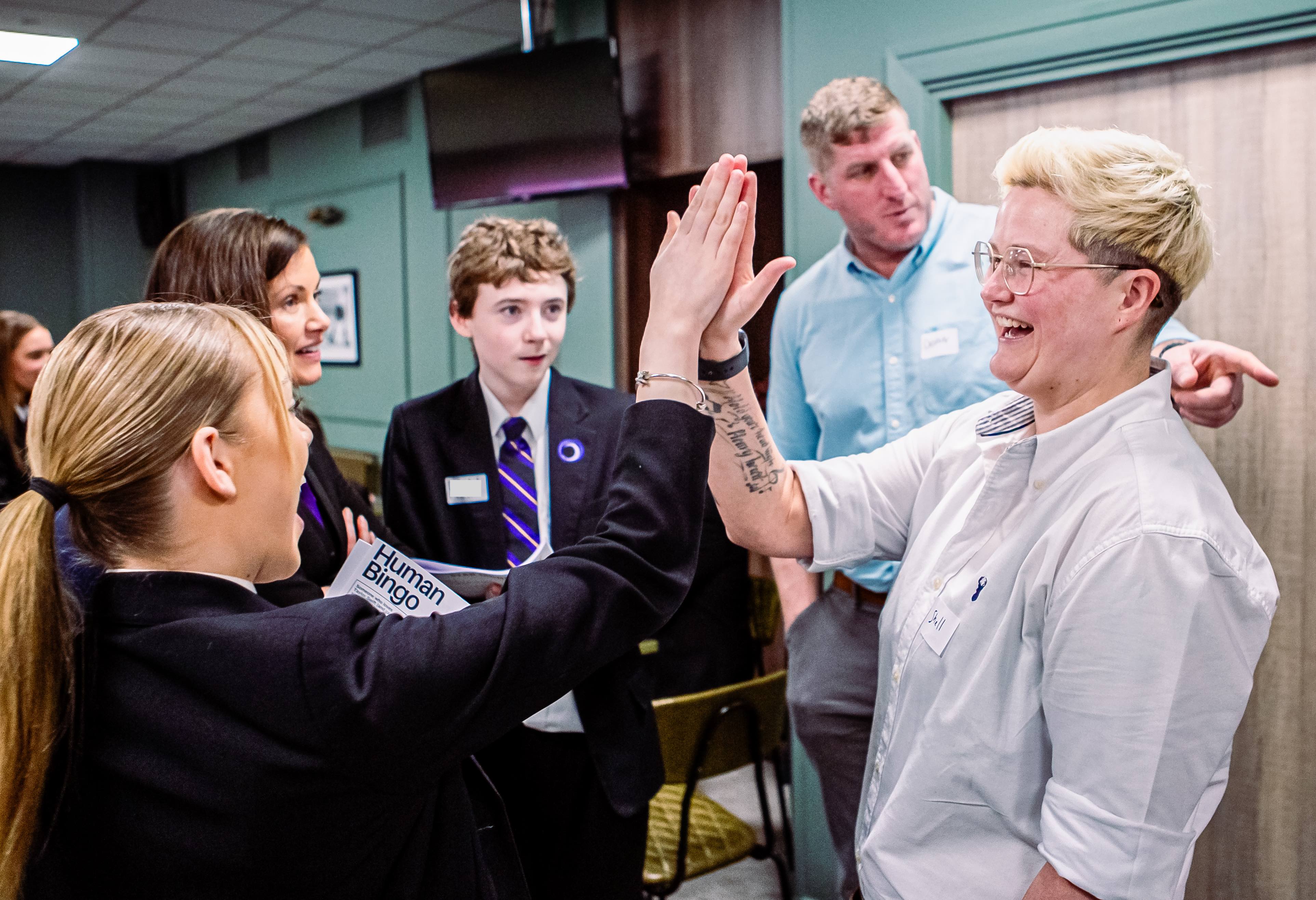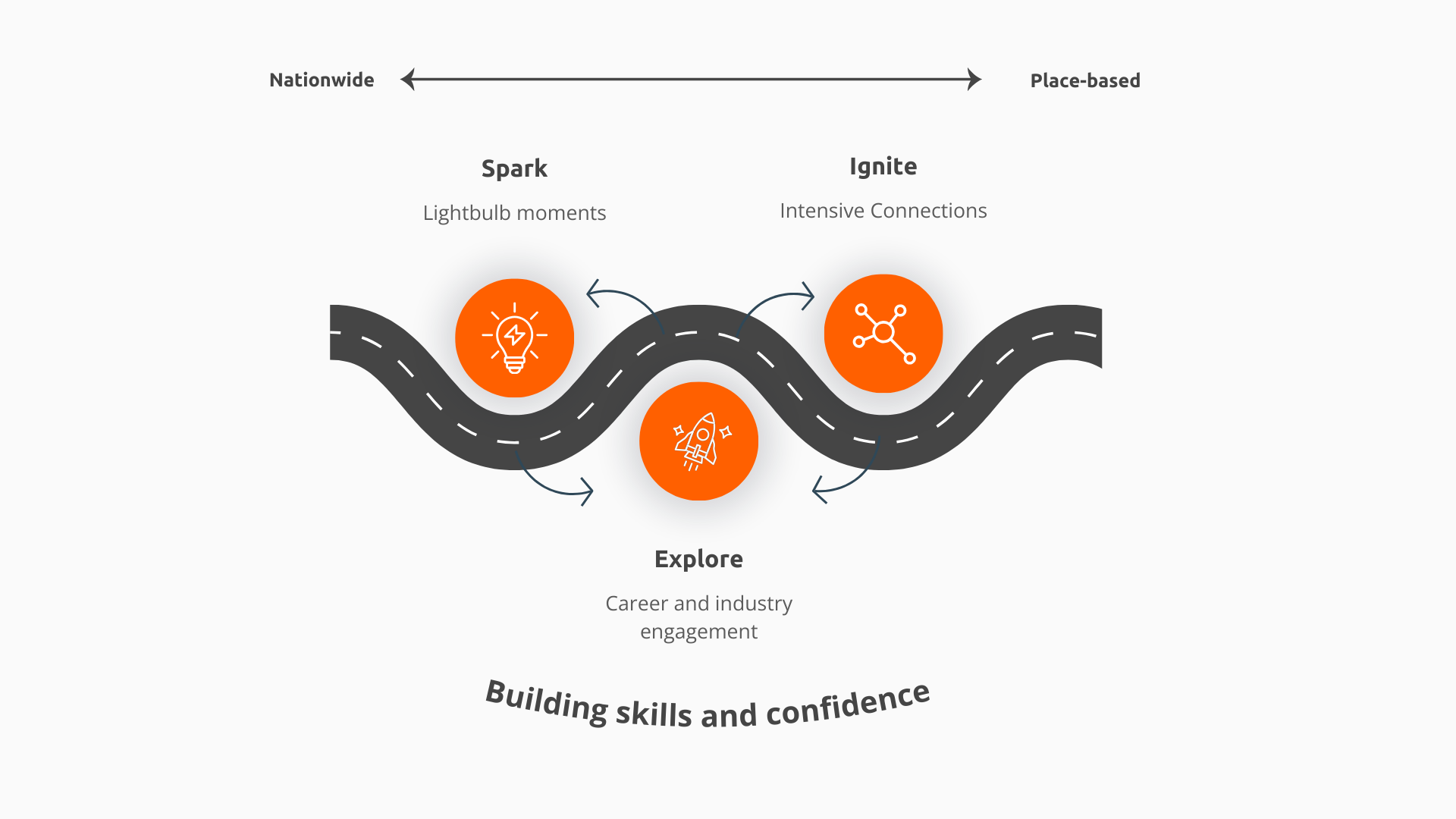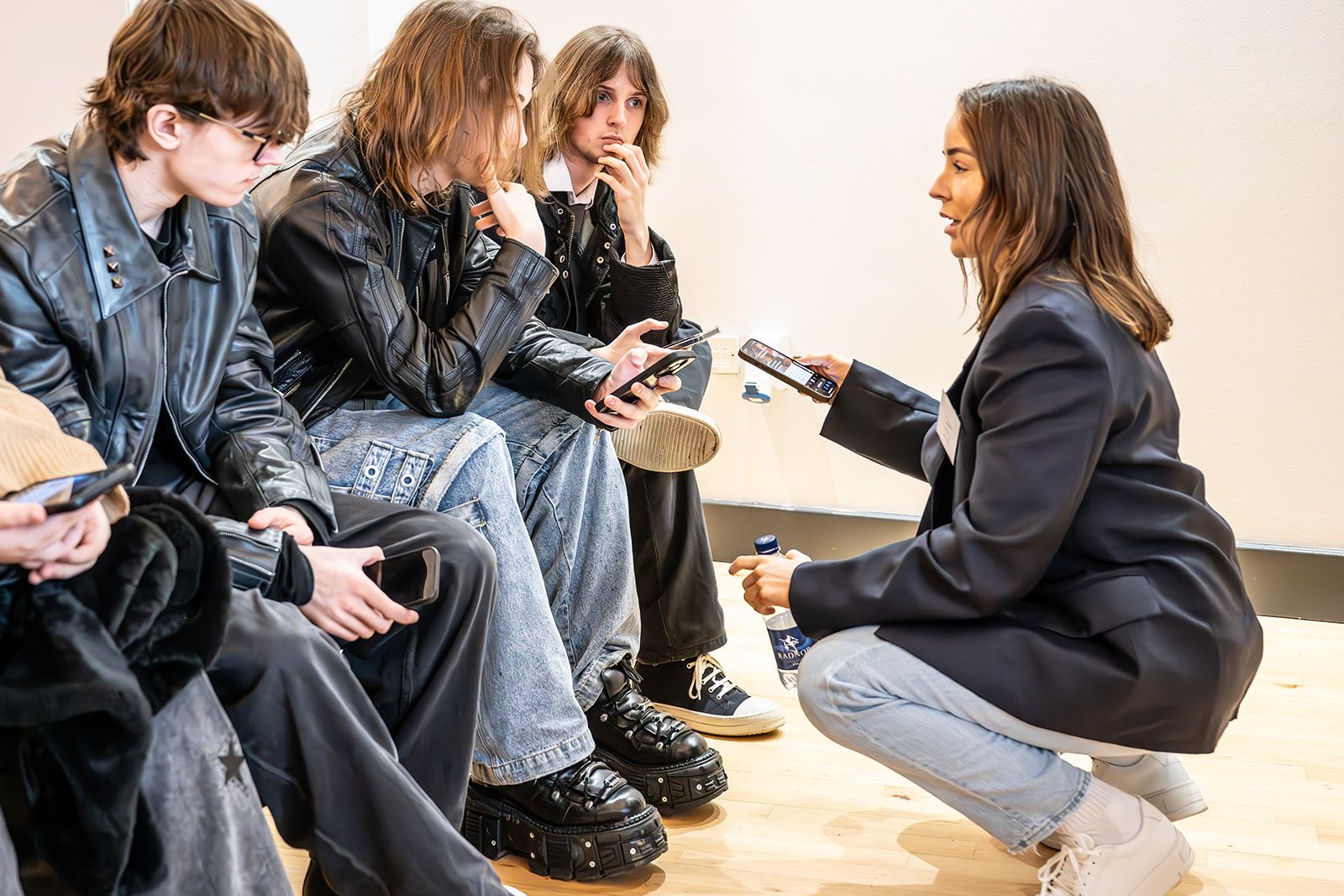Ambition 2030
Talent is everywhere, opportunity is not
Too many of life’s opportunities for young people are still shaped by factors outside of their control.
Where they were born, their family’s income, their school and where they live dictate the educational and career paths open to them.
At The Talent Foundry, we believe this must change.
Download our new five year strategy - Ambition 2030 (PDF) to learn more.

It was so helpful and really pushed me to solidify my career choice. I’m not so stressed about what I want to do now. I learned what my core values are and what strengths I possess.
Our vision
Ambition is one of our values, driving us to set bold goals for the future.
Our new vision for the next stage of our growth is to:
Spark ambition and unlock opportunity so that every young person can succeed and thrive as part of a fairer society.
Our purpose
To support:
- young people from under-served backgrounds to discover their amazing talents, think big about their future and build their skills and confidence to take their next step into higher education or the world of work.
- employers to value young people's talents (not their background) and connect them to exciting career pathways.
We do this by delivering inspiring, skills-based, facilitated workshops led by a The Talent Foundry facilitator and supported by industry volunteers across three themes:
- Spark - lightbulb moments
- Explore - career and industry engagement
- Ignite - intensive connections

The reality of social mobility in the UK
Why we exist:
- The number of young people not in education, employment or training (NEET) is at an 11-year high of nearly one million. Those from disadvantaged backgrounds are twice as likely as their better-off peers to be neither earning nor learning [Impetus, Youth Jobs Gap, 2025]
- Young people have less access to careers education in secondary schools, with a considerable decrease in labour market or enterprise activities [Youth Census, Youth Employment UK, 2024]
- Adults with lower working-class parents are about three times as likely to remain in similar occupations [Social Mobility Commission, 2023]
Read more in our new five year strategy - Ambition 2030 (PDF).
Our strategic priorities
Prepare young people for a future they choose
Young people have access to the knowledge, confidence and experiences they need to succeed in school and beyond
Be a trusted connector between education and employment
Be the go-to partner for schools and employers, connecting education and industry in ways that benefit young people and the communities they live in
Scale our impact through sustainable growth
Strengthen our systems and income to expand our impact for young people across the UK

I did indeed get that Cambridge offer! I honestly couldn’t have done it without Inspire US. A few months ago, I wasn’t even considering applying. When I say the programme was life-changing, I mean it!
Who we work with
We have a proven track record in delivering high impact employability programmes in schools and have supported nearly 700,000 young people since 2009.
We are dedicated to helping under-served students develop the skills, confidence, and connections needed to succeed and thrive in the workplace.
We work with UK schools and colleges that have a higher-than-average number of students eligible for Pupil Premium funding (Pupil Deprivation Grant in Wales and Pupil Equity Fund in Scotland). This also includes Further Education (FE) Colleges where we know a disproportionate number of students eligible for Free School Meals (FSM) attend.
Over 1,900 schools are eligible for our support.
Within our Ignite programmes, we work directly with students who are, or have been, eligible for Free School Meals, will be the first in their family to go to university, are young carers, care-experienced, or have a disability.
Some programmes have a geographical focus where opportunities are focused on under-served locations such as coastal or rural towns.
We focus our efforts in the most under-served communities in the UK and are free for schools to book for groups and individual young people.
Through bespoke partnerships with industry, we deliver free, high-quality and in-person programmes tailored to young people's needs, which are curriculum and Gatsby Benchmark-linked in over 600 UK schools.
We have been working with TTF for five years to build a programme which excites young people and introduces them to the many diverse career opportunities within rail. Our staff volunteer at schools local to them to teach young people about what we do in rail, why we do it, and how they fit in. Inspiring young people to pursue STEM subjects beyond education is key.
2023-2024 year in review

Supporting young people’s ambitions has an economic benefit. According to The Sutton Trust closing the social mobility gap could boost the UK’s GDP by 19bn.
In 2023-24 we supported 64,988 young people across England, Wales and Scotland discover what they are amazing at and inspire them to think big about their futures.
Our 2022-2025 strategy was focused on expanding and diversifying our offer to combine curriculum and career-linked activities with essential skills development opportunities.
This included a new activity framework and a Theory of Change (PDF) aimed at Key Stage 3-5 (P7-S6) and contributing to Gatsby Benchmarks.
Feedback from our programmes demonstrate that the engagement of role models from industry is fundamental to inspiring and connecting young people to the world of work. Industry volunteers bring their own unique, career story into the classroom. This reassures young people that they do not need their futures mapped out and helps them to recognise the skills and strengths that are valuable in the workplace.
The interventions from The Talent Foundry have significantly enhanced the overall classroom atmosphere. Students are more engaged, cooperative and respectful to one another. They have become more empowered and accountable as a result. They have learnt to take ownership of their behaviour and make positive choices inside and outside the classroom. The sessions have given the students a purpose to be at school and focus on their studies.
Our story
The Talent Foundry was founded in 2009 by Amy Leonard MBE.
Initially set-up as a grant funder with the objective of providing fully funded extra-curricular activities for school students from socio-economically disadvantaged backgrounds, we wanted to give these students opportunities that were experienced and enjoyed by their peers from more affluent schools.
In 2011, we transitioned to a service delivery organisation which created bespoke programmes and delivered in partnership with corporate donors. That year we also established our amazing ‘Rock Assembly’ event a combination of a career's festival and pop concert, becoming a real highlight of the year for the students we work with.